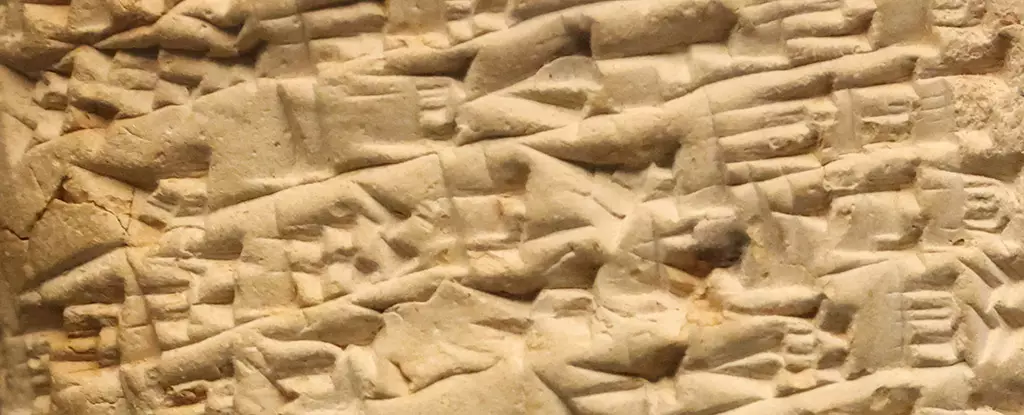In the grand tapestry of history, the threads of trade and communication have always been intricately woven together. Tucked away in the annals of ancient Mesopotamia, a clay tablet dating back nearly 4,000 years offers a startling revelation: the earliest known customer complaint lodged by an aggrieved man named Nanni against a dubious copper trader, Ea-nārṣir. This poignant slice of history not only scratches the surface of commercial relationships but also serves as a harbinger of consumer dissatisfaction that resonates through the ages. Nanni’s tale reveals a fundamental aspect of human interaction—whether in the bustling Agora of ancient Greece or the digital marketplace of today, the dissatisfaction with purchased goods sparks feelings of indignation.
Ancient Patterns in Modern Commerce
Nanni’s grievance transcends time, showcasing the timeless struggle between commerce and trust. He invested his hard-earned money into copper that he presumed to be of high quality, only to find himself ensnared in a world of shoddy goods and mistreatment. A mere business transaction becomes a profound commentary on the responsibilities associated with commerce. In today’s market, we often find ourselves echoing Nanni’s frustrations; from unreliable suppliers to defective products, the age-old battle against subpar service and goods remains a poignant reality. The frustration felt in Nanni’s erudite plea, stamped in cuneiform for all posterity to see, underscores a universal truth: consumers have always deserved better.
The Art of Public Grievance
Crafted painstakingly on a small tablet measuring a mere 11.6 by 5 centimeters, Nanni’s complaint is emblematic of a communication revolution that was just beginning. The absence of customer service hotlines or the ephemeral channels we know today forced individuals to take matters into their own hands—literally. Imagine, instead of voicing concerns through a polite email or a social media post, Nanni had to channel his frustration into written form and entrust it to a physical messenger. This tedious process adds a layer of significance to his complaint. The effort was not just about retribution for a poor purchase; it was an act of reclaiming dignity amidst economic hardship.
Merchant Policies or Merchant Malice?
Nanni’s accusations against the trader paint a vivid picture of the unscrupulous nature of some merchants. His lamentation that he was treated “with contempt” speaks volumes about the expectations of fairness and integrity that existed even in an era so distant from our own. The harsh reality depicted in his messaging—of being sent home empty-handed after multiple attempts to collect what was rightfully his—mirrors present-day frustrations with corporate bureaucracy and unyielding policies that often prioritize profits over genuine customer care.
While Nanni’s fate remains shrouded in historical ambiguity, the very act of placing blame on the inconsistency and unreliability of his supplier showcases both the fragility and strength of buyer-seller relationships. Here we find a profound reflection on ethical business practices that should still resonate today, urging contemporary businesses to strive for transparency and accountability.
An Unfinished Dialogue
Even as we ponder the questions Nanni raised nearly four millennia ago, we are confronted with the stark reality that some questions remain unresolved. Did Nanni reclaim his money? Did Ea-nārṣir change his ways? The ambiguity that cloaks these ancient figures compels us to reflect on the unfinished dialogues that persist between consumers and corporations even now. It is a sobering reminder that while societies evolve, the core of the buyer-seller relationship continues to carry the weight of trust and betrayal.
Ultimately, the anger etched into that clay tablet is more than an emotive outpouring from an ancient potter; it is a vibrant testament to the enduring power of voice amidst dissatisfaction. The artifact serves not merely as an archaeological curiosity but as an emblematic reminder of our ongoing struggle for fairness in trade—a struggle as relevant today as it was during Mesopotamia’s heyday. As we continue to navigate the complexities of modern commerce, let us not forget the wisdom from our ancestors, who, in their own fierce and unyielding manner, demanded that the scales of trade be balanced in favor of justice.

Leave a Reply